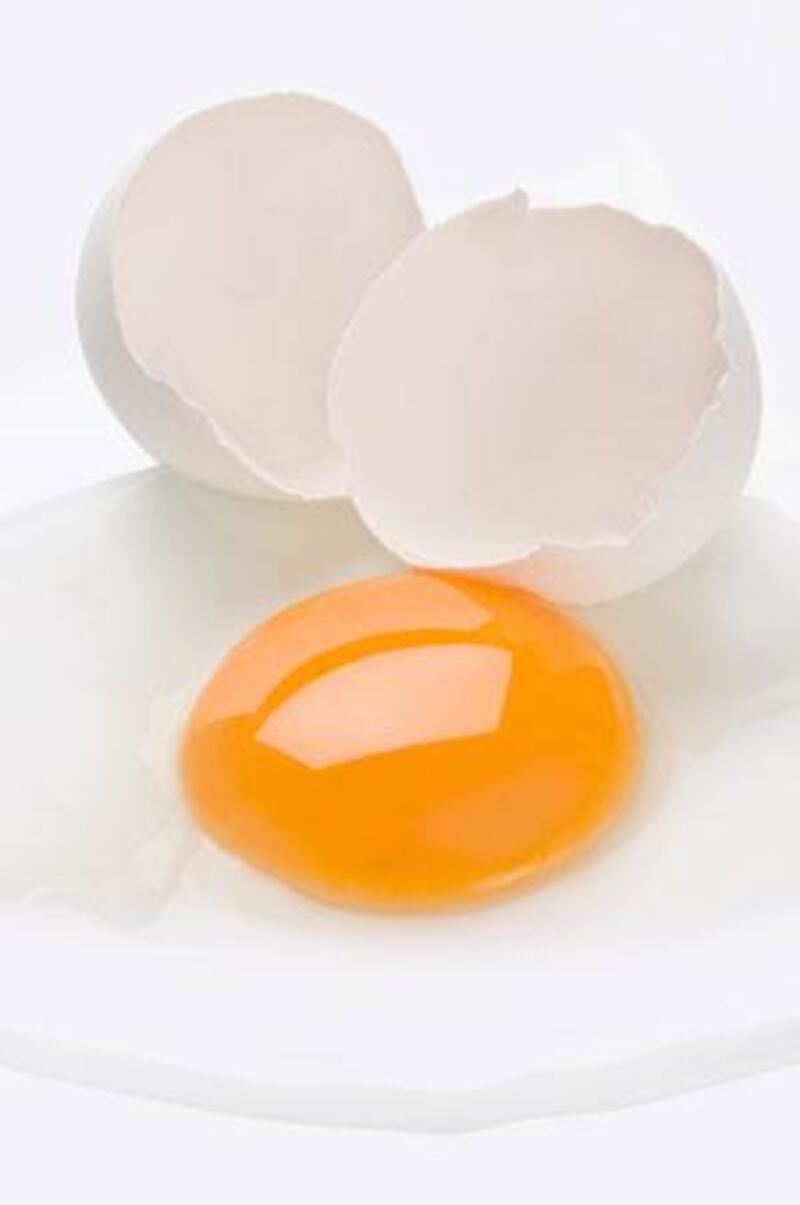I love eggs, but there have been times when I've temporarily given them up. The smell of raw eggs can sometimes make my knees quake with nausea. And with eggs, freshness is not always paramount. It's impossible, for example, to make devilled eggs without gnashing one's teeth unless week-old eggs are used; otherwise, peeling the membrane between the shell and the white away is akin to removing wet Kleenex from a Velcro strap.
About once a month, I'll invest in a dozen of my farmer friend Matt Romero's red chilli eggs, made by feeding his surplus red chilli crop to his happy, free-range chickens. With 10 flame-yolked eggs, I make a ridiculously rich and delicious south-west frittata and serve it with avocado relish. The remaining two eggs go into a batch of fresh cornbread made with buttermilk and Hoppin' John's cornmeal.
I like eggs, sweet and savoury. Sometimes, I even like them simultaneously sweet and savoury: one of the most delicious things I've ever eaten is Alain Passard's Arpège egg: poached egg yolk, sherry-vinegar-whipped cream, maple syrup, fleur de sel and chives. Eggs can be hard-boiled, soft-boiled, over-easy, over-medium and fried; they can be poached, pickled, scrambled wet, scrambled dry and served sunny side up, in which case they offer a guarantee of improvement to almost anything.
What would baking and pastry be without eggs? There would be no quiche, no mousse, no meringue. What would a walk in the West Village be like without a pit stop for the truffled egg toast at 'ino? And what trip to Chinatown would be complete without salted duck eggs and hundred-year-old eggs? Considering that my favourite bread is brioche and my favourite dessert is vanilla frozen custard (similar to vanilla soft-serve ice cream, but much nicer), I don't think it's possible to gild the lily with eggs, so long as they are good eggs. Caviar, which involves eggs at their most luxurious, is very nice to have on hand for lily-gilding, if you're looking for a way to make new friends and burn through a lot of cash.
Ultimately the diets of the birds are going to affect the flavour of their eggs more than anything else. There are organic eggs (although there is controversy surrounding the farming and husbandry of organic livestock), cage-free eggs (which doesn't mean the chickens are being treated humanely), vegetarian-feed eggs (despite chickens being omnivorous and most battery-caged birds already being on an arguably pointless vegetarian diet). Lately, eggs with especially high amounts of omega 3 fatty acids have been heavily promoted as the ideal option (omega 3 fatty acids are extremely important for our health). And those eggs, produced by chickens with diets high in kelp meal, are fine, but don't waste your money buying fortified eggs if you only eat egg whites.
Eggs can also be eaten raw, but the risk of salmonella provides less incentive to most people than the fact the protein in raw eggs is practically half as bio-available as that of a cooked egg. When I was a kid, it didn't take much more than the greenish ring that sometimes appears around overcooked egg yolk to repel me from the thought of eggs for months. But it was more than the sulphurous, ammoniated smell of eggs that turned me off; I also had vague, dramatic concerns over cholesterol, fuelled by the knowledge that I had a genetic predisposition toward unfavourably high numbers.
A 100-gram chicken egg contains approximately 10 grams of fat. There's no doubt that eggs are very high in cholesterol, although evidence that dietary cholesterol causes heart disease has always been controversial. The writers Uffe Ravnskov, MD, PhD (The Cholesterol Myths), Nina Planck (Real Food) and Harold McGee (On Food and Cooking) argue that the cholesterol in the yolk is not what causes a problem. Times are changing and eggs are the new butter: underrated, misunderstood, glorious.
One large egg yolk has about 213mg of cholesterol, 13mgs more than anyone with issues should be eating according to the conventional cardio wisdom that many of us still rely on (remember when we believed that margarine was better for us than butter?). In spite of the fact that egg white consists of a little bit of protein (13 per cent, albeit a perfect protein) and a lot of water (the remaining 87 per cent), allergies against egg whites are far more common than those against egg yolks. All the vitamins A, D and E in an egg are found in the yolk, which also contains choline, a nutrient essential for brain development.
When deciding whether to include eggs in your diet, consider recommended daily limits, but consider moderation first. Personally, I'd rather have real eggs however I please every once in a while than eat cholesterol-free egg substitutes or omelettes made with egg whites.










